The Future of US Women’s Development: Anson Dorrance and Keith Tozer Talk Futsal
Why are Anson Dorrance and Keith Tozer teaming up to help people understand the importance of futsal? Because futsal is that great.
If you are attending the United Soccer Coaches 2020 Convention in Baltimore, don’t miss their special session The Future of US Women’s Development: 8v8 Outdoor Development and Futsal on Friday, January 17, 2020: 1:30 PM – 2:30 PM.
Futsal is an exhilarating and fast-paced game played on a hard court, like a basketball court. It is a spirited, fun-filled and creative game of 5 players vs 5 players. And, it is an amazing tool for developing soccer players and keeping kids in the game.
In my opinion, futsal is one of the best player development platforms. I want to see futsal added to the outdoor game.
Anson Dorrance – Winner of the first FIFA Women’s World Cup in 1991. Dorrance served as the U.S. Women’s National Team Coach from 1986 to 1994.
Here are two of the most influential coaches in America on why Futsal makes sense.
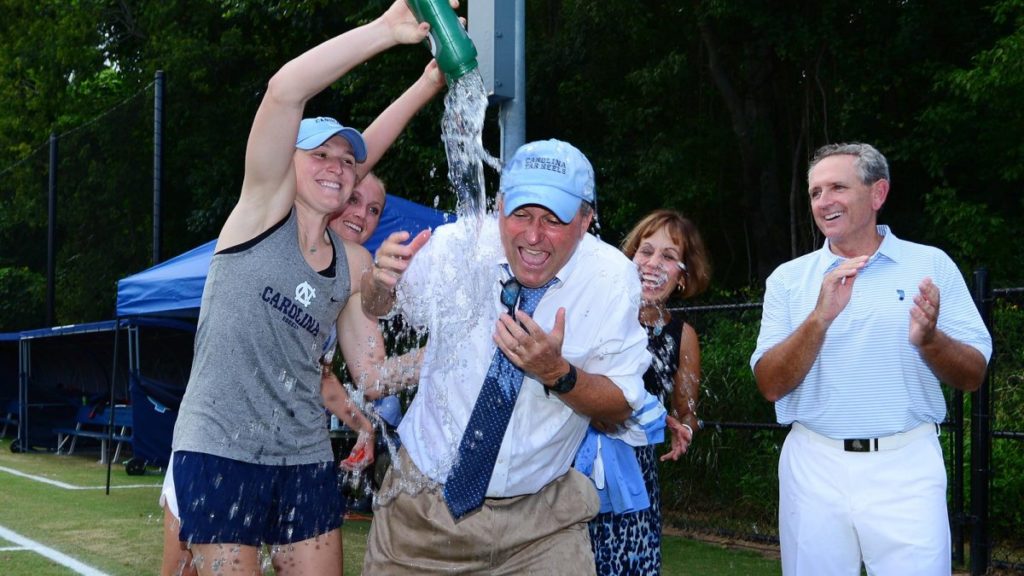
Anson Dorrance has one of the most successful coaching records in the history of athletics and enters his 44th year as Head Coach at the University of North Carolina (UNC) in the fall of 2020.
A world-renowned soccer coach, Dorrance is the former U.S. Women’s National Team head coach, bringing the initial World Cup championship home to the USA. Also the founder of the UNC women’s program in 1979, Dorrance was named the 2016 winner of U.S. Soccer’s prestigious Werner Fricker Builder Award and was inducted into the National Soccer Hall of Fame in 2008. A true “Builders of the Game” Dorrance has led the North Carolina women’s soccer team to 38 appearances in the NCAA tournament and the Tar Heels have fielded some of the best women’s soccer players to ever play the game.
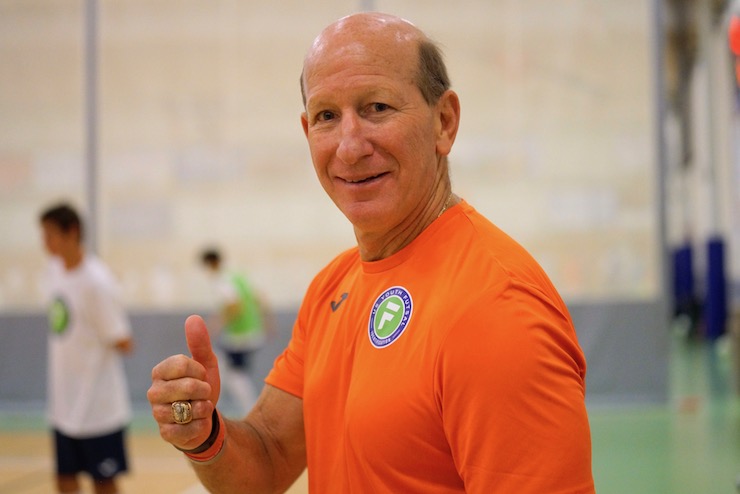
Keith Tozer is better known as Mr. Futsal. A passionate leader known around the globe, Tozer is the former long-time head coach of the U.S. Soccer National Futsal Team, the commissioner of the PFL (Professional Futsal League), the technical director for US Youth Futsal and leads his own popular podcast series, The World of Futsal. In addition, Tozer is a FIFA instructor.
SoccerToday’s Interview with Anson Dorrance and Keith Tozer on Futsal
Diane Scavuzzo: You are teaming up at the United Soccer Coaches’ upcoming annual convention in Baltimore — What are you doing together?
Keith Tozer: We are holding a special field session at the United Soccer Coaches 2020 Convention: The Future of US Women’s Development: 8v8 Outdoor Development and Futsal. It will be on Friday, January 17, 2020, from 1:30 PM to 2:30 PM on the Mini Pitch.
Diane Scavuzzo: Anson, as the head coach of the U.S. Women’s National Team from 1986-94, you coached the famous 1991 World Cup squad which won the gold medal. What are your thoughts on the team’s success at the 2019 World Cup?
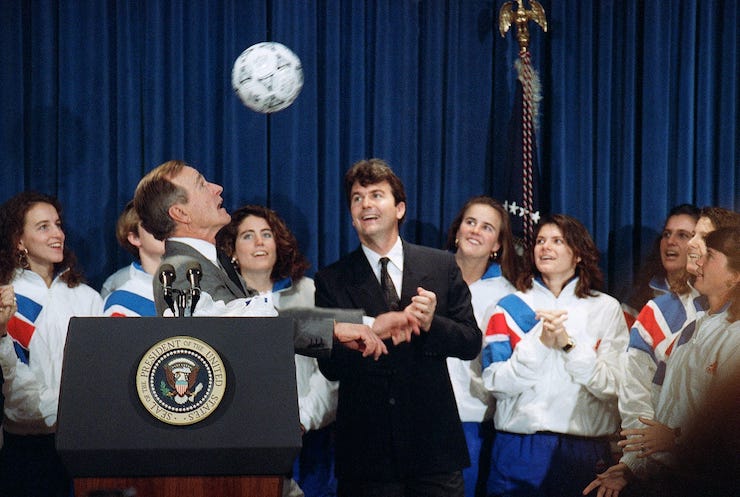
Anson Dorrance: Obviously we are all excited about where the women’s game is and all the work being done — at all the different levels — to continue to put us in the position where we’re dynastic.
We’re incredibly proud that we got our fourth star and we went right through the heart of Europe to win the world championship again. If you look at our Olympics successes, we’re an eight-time world champion.
In every respect, I think we’re in fabulous shape.
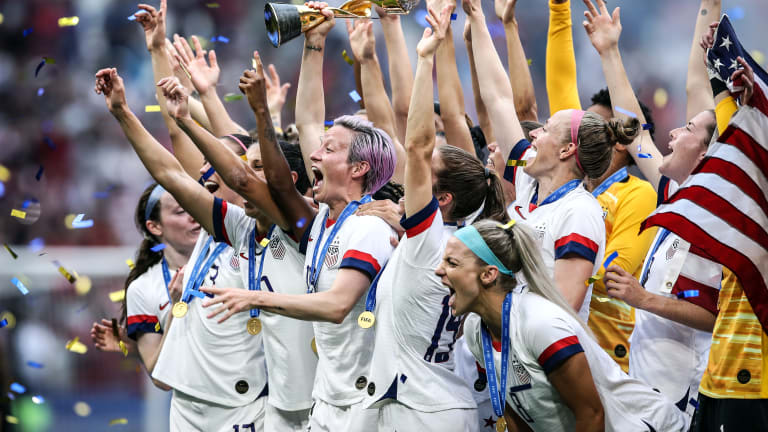
Of course, there are a lot of different people with solutions for how we’re going to try to stay in this position and solutions for what we can do to get the men on track to compete internationally.
Now, I think we have an opportunity to marry, what in my opinion, is one of the best player development platforms I’ve ever seen. I want to see futsal added to the outdoor game.
The United States is in an extraordinarily rare position to add futsal to our arsenal for player development because, at all levels — elementary, middle, high school, and college — we’re blessed with having school gymnasiums.
Players can start playing futsal immediately — without any construction needed — all we need are aggressive coaches trying to get gym time! This is an opportunity for us to engage all of our outdoor players in the game.
And it is critical — because the issue we’re having right now, and everyone knows this, is that players at a youth level are quitting our game in droves.
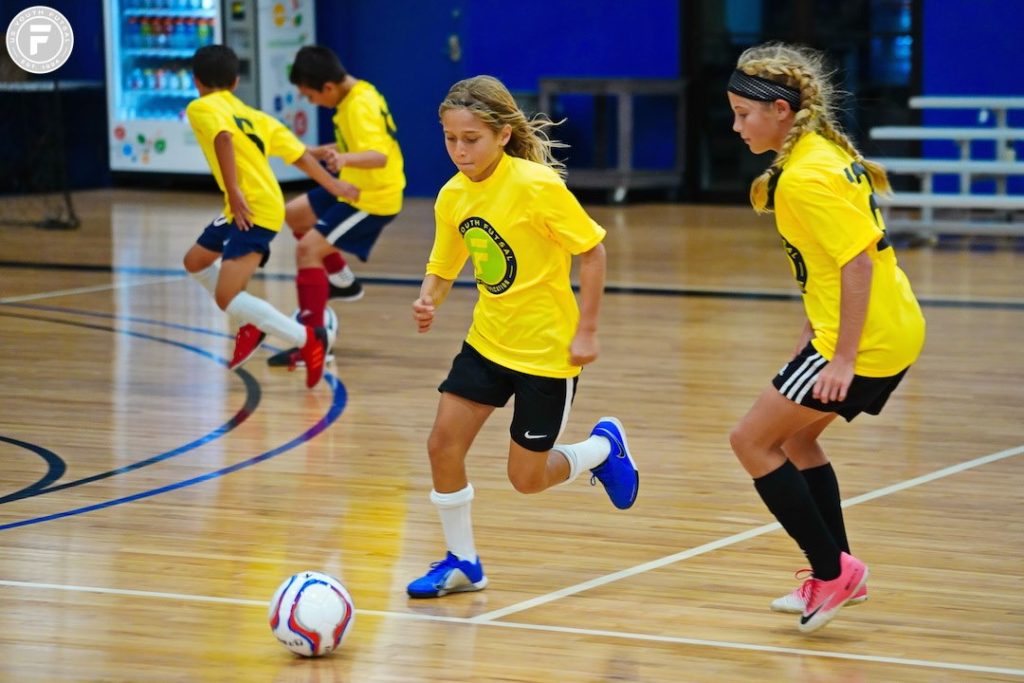
Honestly, a part of the reason kids are quitting soccer is we’ve become too aggressive and linear. Our nationally mandated player development system is choking our young players’ freedom to be multiple sport athletes and to represent their high schools; to just play for fun some of the time. I think we have to return to is what makes it fun, more of the time.
Futsal is fun.
I’ve had my players play futsal forever. You can go back to the Mia Hamm and Kristine Lilly era at UNC and even the recent years with players Crystal Dunn and Tobin Heath … One night a week from January to the end of our spring season, the players are playing futsal — and, absolutely loving it.
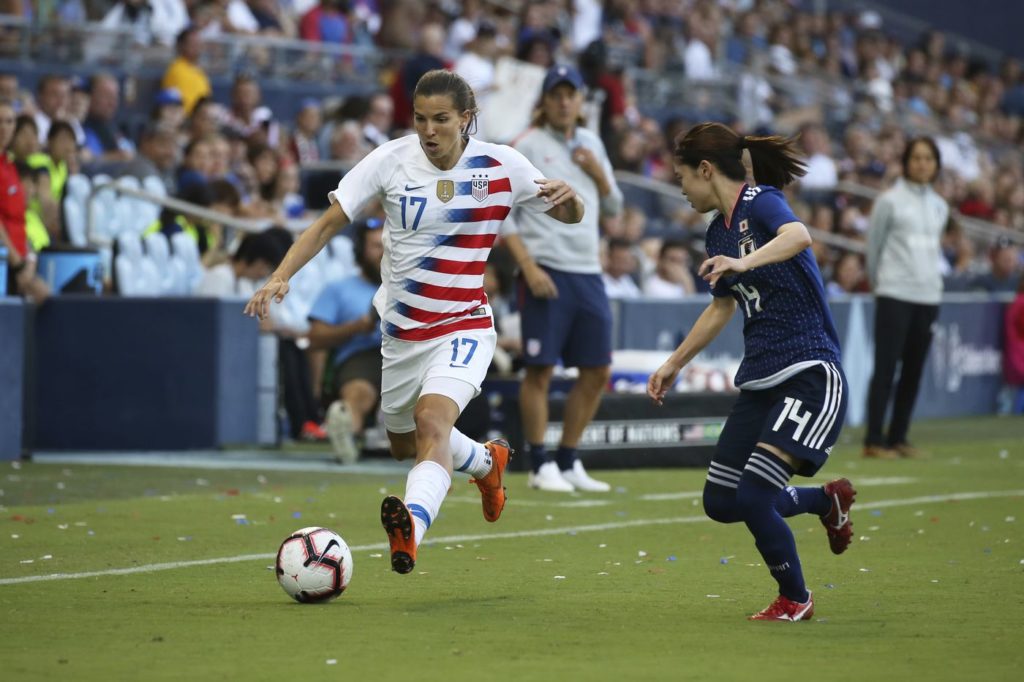
Diane Scavuzzo: Why do players love playing futsal?
Anson Dorrance: One reason they love it is we don’t overburden them with a training environment. We basically let them play.
Diane Scavuzzo: Why do you believe so strongly in futsal as a key development tool for soccer players?
Anson Dorrance: Of all the games that are out there, the game that can teach players how to play most efficiently, is futsal.
It’s also a game you can play multiple systems with. Keith and I will expose different systems at the convention.
I want to push futsal as a player development platform.
Futsal can help us stay in the position of a dynastic dominance on the women’s side.
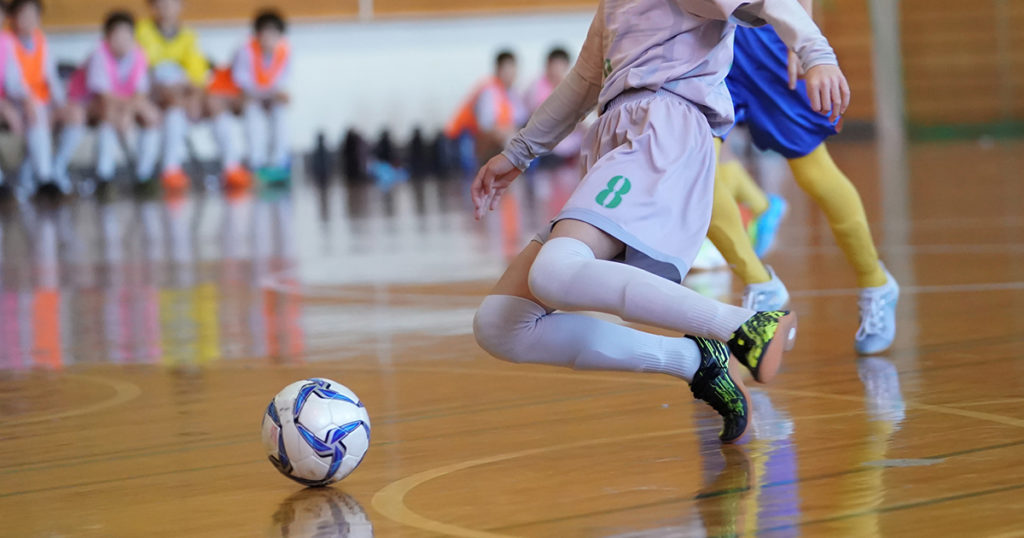
Diane Scavuzzo: What specifically is it about futsal that you believe is so fabulous for players?
Anson Dorrance: Basically futsal players are masters of the ball. They are so comfortable when a ball comes to them, they don’t have to worry about the ball. They can focus on what can make them extraordinary, like the angle of pressure, the speed of pressure, where space is, and how critical it is for them to have an excellent first touch.
When you’re on a futsal court with a futsal ball, you actually become more skillful — just because the ball is tougher to tackle. It’s smaller so it’s tougher to hit.
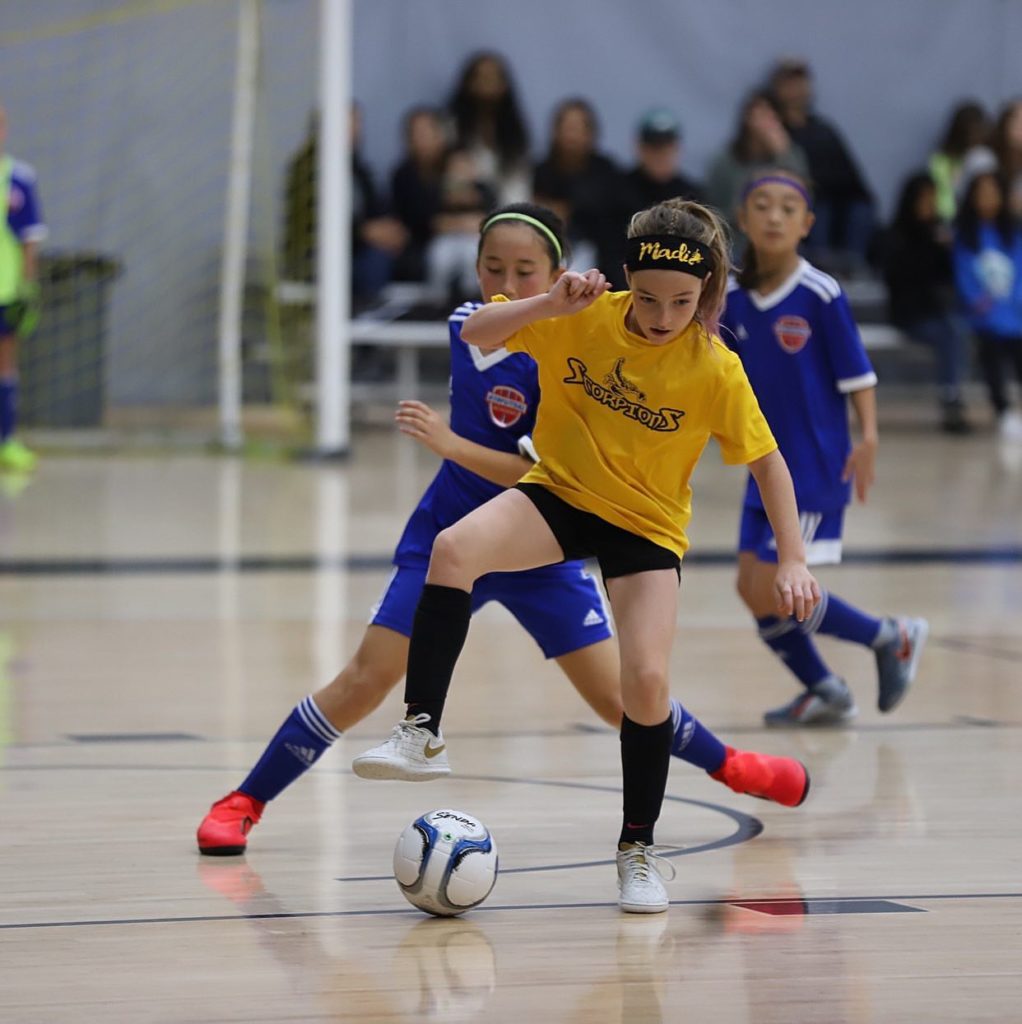
It’s easier to track because when the ball hits your foot because it’s not as bouncy as an outdoor ball, and it’s brought under control more efficiently.
Futsal is so good at building confidence with the ball. Players end up developing an extraordinary capacity to play the game well and that I think can separate you. I’ve seen this from all of my great outdoor players who use futsal as the complimentary supplement to their player development.
I can come up to a player at one of my ID camp and say, “Hey, you played futsal,” and about 80 to 85% of the time, I am spot on with my guess because there’s a visible skill set that separates them.
Keith Tozer: God I love that, by the way.
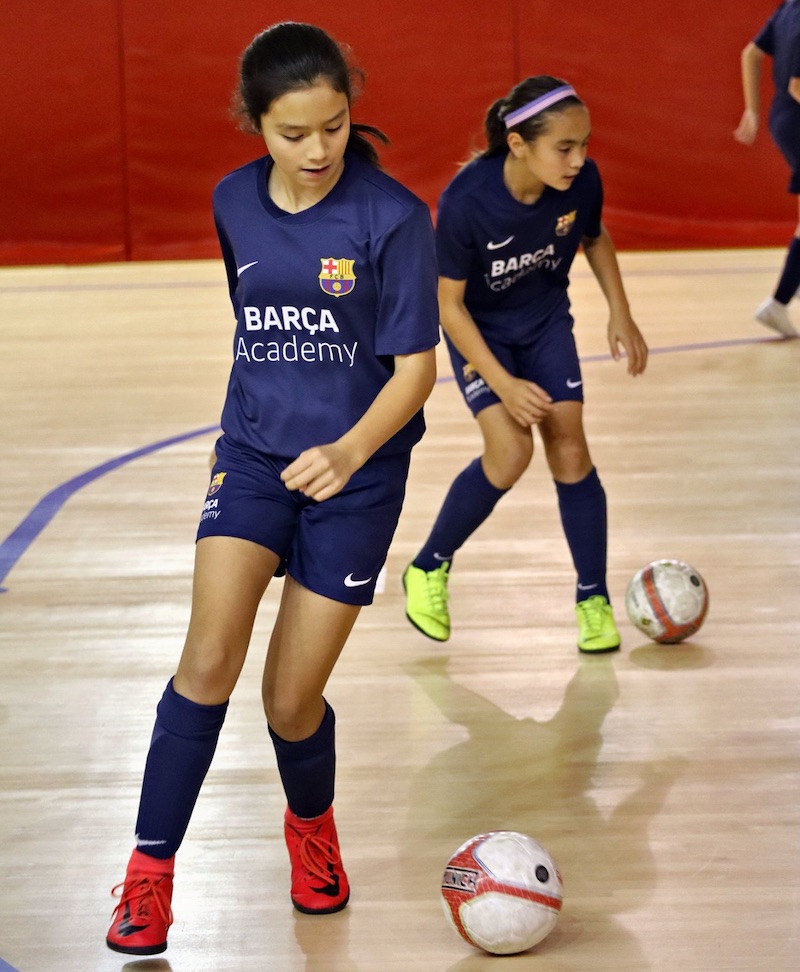
And, I am in 100% in agreement that futsal has players answer the equation with the ball. As we all know, the two main levels in scoring are counter-attacks and set pieces. And futsal is all about creating counter-attacks, and scoring on set pieces.
When players return to outdoor soccer after playing futsal, you get a different kind of player. They have great technical ability and tactical awareness, and their mental tools become so much better.
So when Anson called me and said, “Keith, at the coach’s convention on December 17th at 1:30 I would love to marry futsal and outdoor soccer together. Would you want to do it?” I was thrilled. I’m extremely excited about bringing our special session to the convention and show how futsal ties into the outdoor game.
Diane Scavuzzo: There are still a lot of youth soccer coaches who are unfamiliar with it and they simply don’t believe in the power of futsal. What would you say if you were talking to a coach like that?
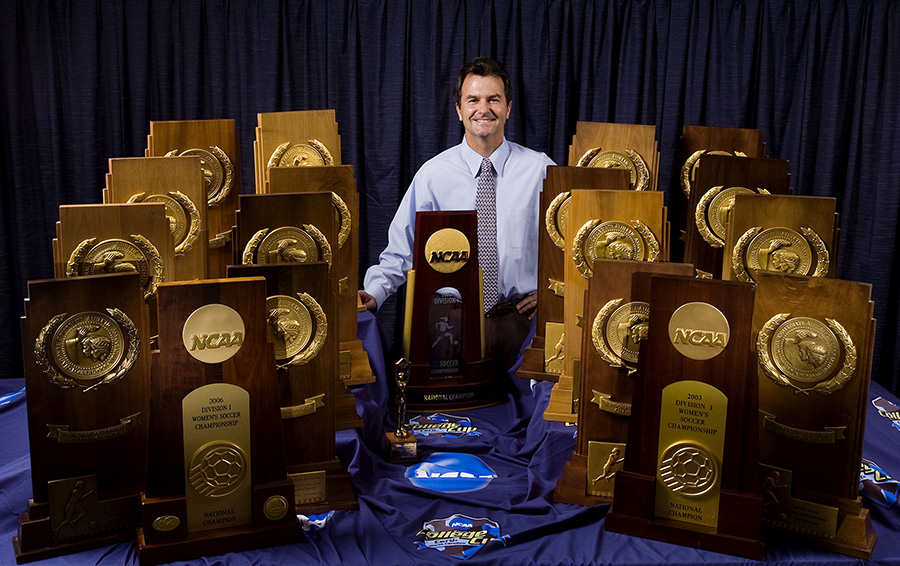
Anson Dorrance: Well, if they live near Chapel Hill, I would invite them to come to watch a futsal session and they would see all we do is divide up our players and let them play.
It’s going to be very easy for me to convince a youth soccer coach to play futsal.
Futsal is an amazing player development platform.
So whether or not a coach has any futsal experience, if they just throw their kids out there with a size three weighted futsal ball on a basketball court with regulation futsal goals, it’s going to be amazing. Even if they don’t have futsal goals, heck, a traffic cone or garbage cans can work. And, if a coach is interested, there are elite levels in futsal to explore.
The players will have so much fun and you can see an incredible jump in skill development after just one winter season playing futsal.
The game of futsal itself teaches players how to master the ball.
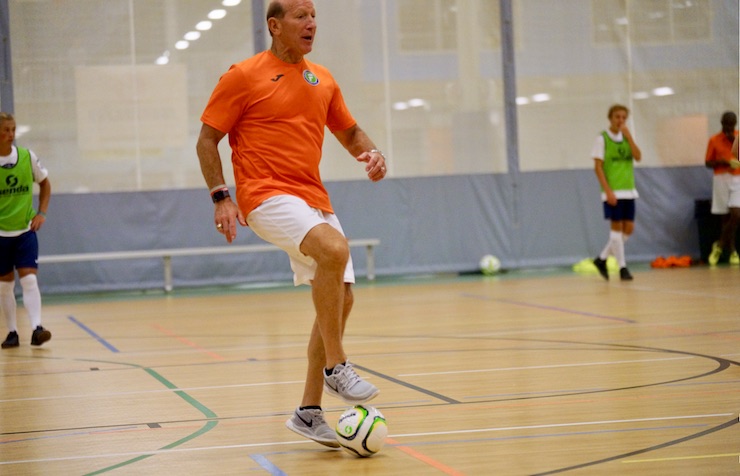
Keith Tozer: I remember sitting in Anson’s kitchen at Chapel Hill. I’m having a cup of coffee with him and his beautiful wife and I say, “Anson, you’ve won 22 national championships and a World Cup — and you think futsal is the game-changer.”
There are other coaches who have not claimed nearly as many victories who don’t realize the benefits of futsal. Anson has developed Allie Long, Heather O’Reilly, Mia Hamm, Kristine Lilly, and so many other national team players, — and, he believes in futsal, so why wouldn’t others at least try it?
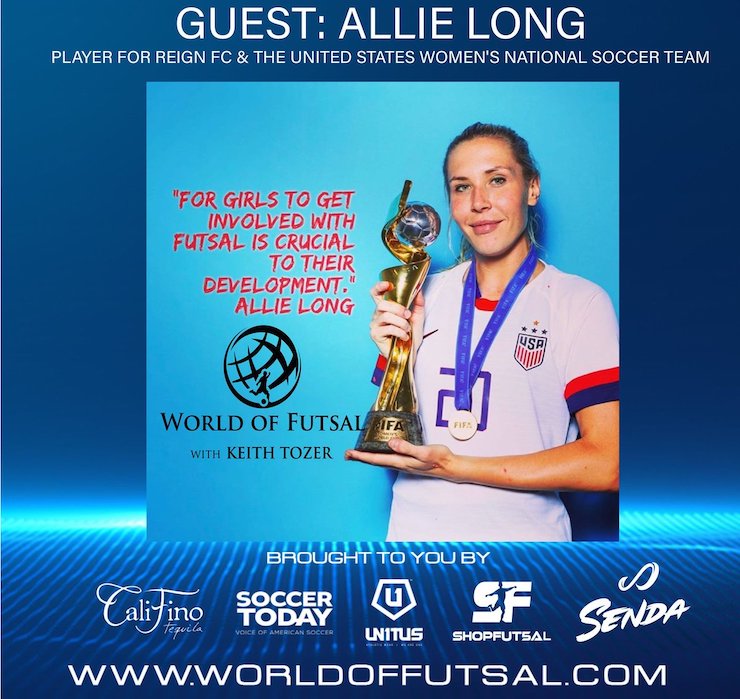
Diane Scavuzzo: Keith, when did you first realize futsal was a fabulous development tool for soccer players?
Keith Tozer: Diane, it’s interesting because in the late seventies, when I went to school, there were two big college rivals; Hartwick College and Oneonta State. Jimmy Lennox used to coach Hartwick, and I remember him reaching out to me when I played for the rival, Oneonta.
Lennox said, “Hey, we’re playing soccer inside the gym during the winter. Why don’t you come and join us?” And, I’m like, “God, this is great.”
During this time, these two programs produced three Hermann Trophy winners; Glenn “Moochie” Myernick, Billy Gazonas and Farruhk Quraishi were all honored as top male collegiate soccer players in the USA.
Diane Scavuzzo: What did you call it?
Keith Tozer: We just called it soccer in a gym. This is before the term futsal was used here. People also called it street soccer. Other countries called it Futbol Sala. Whatever you want to call it, playing this game improves a player’s technical ability, tactical awareness, and physicality.
I credit futsal for winning 6 indoor championships and more than 800 professional indoor soccer victories.
Diane Scavuzzo: How would you describe futsal as a learning tool, not just for skill development, but for a player to be more creative?
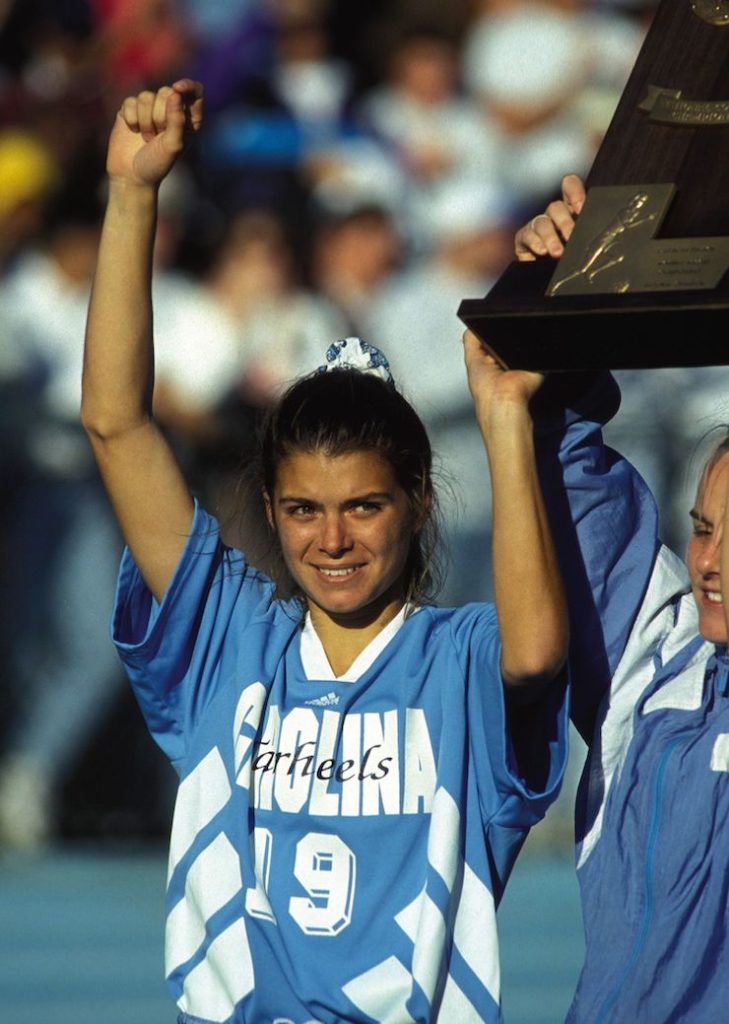
Anson Dorrance: I think Diane, you’re driving in the right direction — All of us talk about street soccer. All the top players in South America play street soccer — this is the game that builds the player. None of these players had a coach saying, “Oh my gosh, you should’ve passed it then” or “You should have played the ball backwards.”
What I love about futsal is it gives the game back to the players.
What are the players doing? They’re having the time of their lives playing futsal. What are they doing? They are experimenting. And, before you know it, there’s incredible creativity born.
When you have this chance — to just have fun with the ball — it gives you the opportunity to be creative. Great soccer players have creativity.
I’ve had the privilege of coaching a whole collection of absolutely brilliant players. And the sort of player you’re describing is a Tobin Heath. When she gets the ball, you’re holding your breath because you’re wondering what she’s going to do next. Or a player like Crystal Dunn. When she gets the ball, you’re wondering, “Well how is she going to beat this girl this time?” Dunn has so many different ways to go by a player one-on-one, as does Tobin.
Players like Mia Hamm, Kristine Lilly, Cindy Parlow, and Tisha Venturini-Hoch — they just have this incredible creativity.
And where do you see it exposed most? Do you see it in a typical soccer training session? Occasionally maybe, but I’ll tell you the time I always saw it.
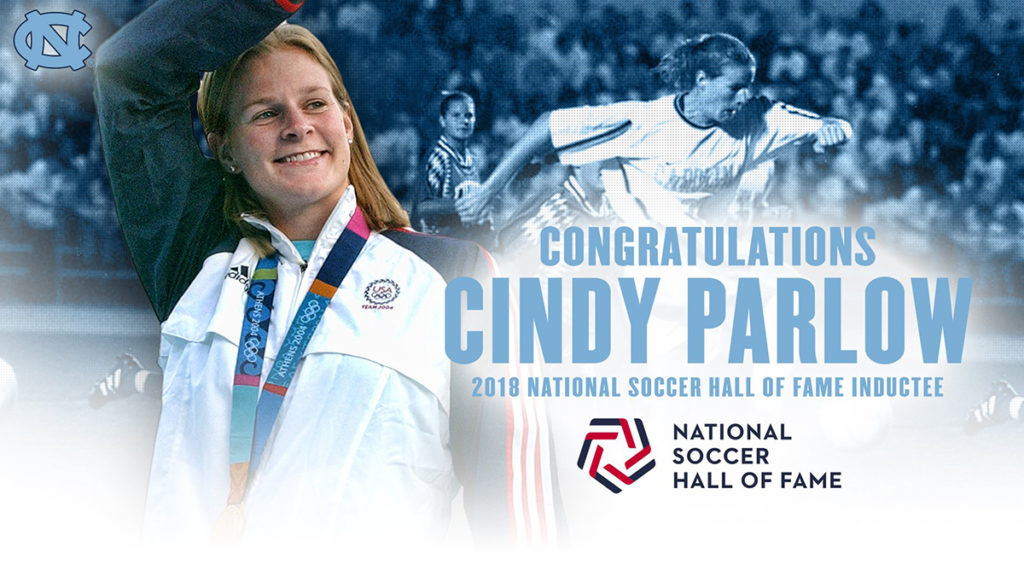
I saw this creativity develop the entire time they played futsal.
We’re not coaching, we’re just setting it up. We’re splitting our player roster into four, five-person futsal teams, and we’re just letting them play. So right after one game is finished their two 20 minute halves, the other team is on and they’re all having the time of their lives.
Keith Tozer: You know what I call the wow factor?
The wow factor is when I went to Chapel Hill with Anson, he had 50 girls ranging from 11-years old to 15-years old. And he said, “Coach, we’re going to go into the basketball stadium where Michael Jordan played his last season and we’re going to put these girls into three age groups and they’re going to play. And each grade plays for 30 minutes.”
No coaching. We just sat back. To me, it was an epiphany.
“Wow, that’s awesome.”





